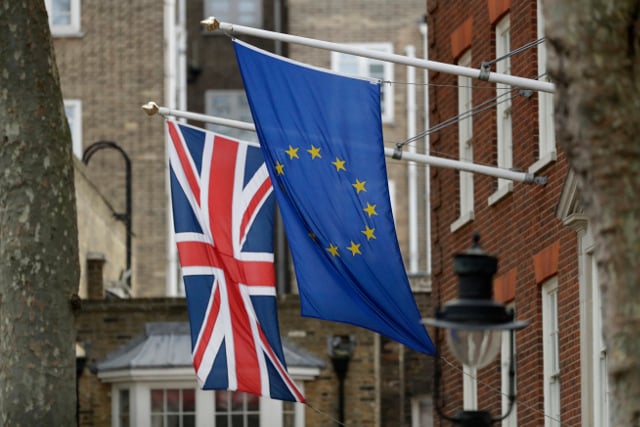The report by Sweden’s National Board of Trade (Kommerskollegium) looked into how the trade of services between the EU and UK may be regulated once Britain leaves the union, and also provided alternatives for how customs and trade procedures for goods could be regulated.
“The UK is an important trade partner for Sweden and we hope that will continue in the future. But it is clear that it will be both more expensive and more difficult to trade with the UK after Brexit, and we need to look at possible solutions to reduce the negative effects on trade,” Sweden’s EU affairs and trade minister Ann Linde said in a statement after receiving the report on Tuesday.
The 177-page study does not paint a particularly encouraging picture. It notes that “regardless of which alternative is the result of the exit process, there will be a worsening in trade between the EU and the UK compared to today”.
The document explains that customs procedures will return from the first day that the UK is no longer a member of the EU, meaning “increased administration, increased costs, and reduced stability in the flow of goods”.
“The possibilities of making the customs procedures easy for countries which leave the customs union are small, and the risk of substantial administrative burdens and complicated trade procedures is serious,” Linde commented.
Här överlämnar @AnnaStellinger @Kommerskoll Brexit-rapport om hur utträdet kommer att påverka handeln mellan SE & GB https://t.co/TQh4aVRdgt pic.twitter.com/lvuhSTR1AB
— Ann Linde (@AnnLinde) March 14, 2017
The Kommerskollegium study also warned that businesses are likely to adjust to a worsened trade situation by looking for new markets other than the UK to work with:
“Trade and businesses adjust themselves according to opportunities and hindrances. Trade patterns are not static, and it can be assumed that other markets will be prioritized over the British one if the UK leaves the single market.”
The study calculated that half of the UK's trade currently occurs with EU nations, with 53 percent of its imports coming from the EU and 44 percent of its exports going there. About 1.7 percent of the UK’s imports come from Sweden while 1.5 percent of its exports go there.
Sweden imported 62 billion kronor ($6.92 billion) worth of services and the same amount in goods from the UK in 2016. That same year, Sweden exported services worth 51 billion kronor ($5.69 billion) and goods worth 72 billion kronor ($8 billion) to the UK.
A more general conclusion from the document is that the EU single market clearly benefits the trade of goods and services compared to other alternatives:
“A deep and broad free trade agreement similar to the ones the EU has with Canada, Ukraine or South Korea, even in its most ambitious form, does not provide the benefits the single market does.”
The report is set to be an important contribution in shaping Sweden's position during the forthcoming Brexit negotiations between the UK and EU.



 Please whitelist us to continue reading.
Please whitelist us to continue reading.